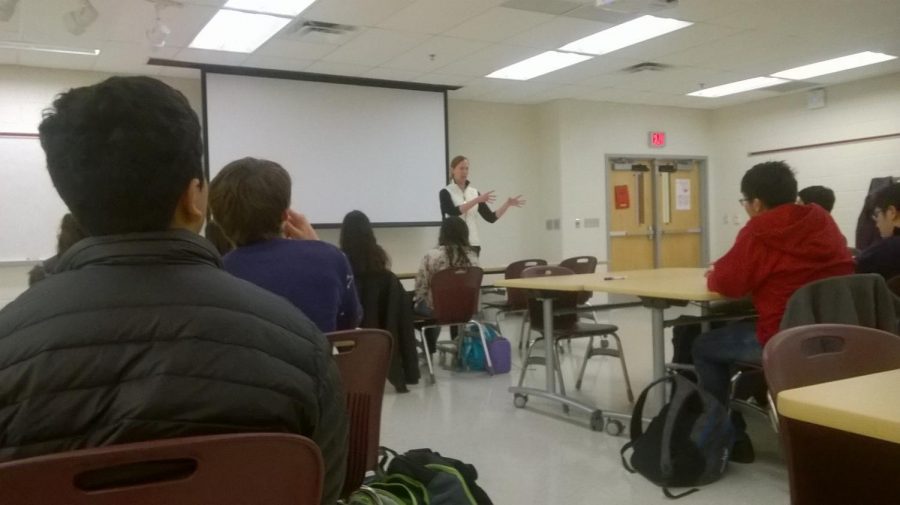Jefferson Alumna Guest Speaker Gives Cybersecurity Presentation
Charlet, Jefferson Class of 1998, discusses cybersecurity as well as different science and technology policy careers in the Lecture Hall.
January 12, 2018
On Wednesday, Dec. 13, during both eighth period blocks, Kate Charlet came to the Lecture Hall at Jefferson to discuss cybersecurity as well as policy careers. Charlet is a Jefferson Alumna in the Class of 1998 and is the Program Director for Technology & International Affairs at the Carnegie Endowment for International Peace, a think tank in Washington DC, where she examines the international implications of evolving technologies.
At Jefferson, she participated in the biotechnology mentorship program at George Mason University. In 2002, she graduated from Princeton with a degree in molecular biology. From there, she went on to the Department of Defense from 2014 to 2017, where she aided in responding to cyberattacks, such as the North Korean hack on Sony. Charlet also oversaw the development of the Pentagon’s cyber strategy and cyber forces.
She has also worked on numerous agreements between the United States and other foreign countries.
“I worked on a cybersecurity agreement between the US government and China government, saying that you cannot use information from another country to help your business.” Charlet said.
Having been through Jefferson, Charlet also discussed her high school experience, as well as emphasized that there are policy careers available for those who wish to take up journalism for a career. She also discussed her career changes, from being in the Department of Defense for 10 years to then switching to being the Program Director at the Carnegie Endowment for International Peace in Washington D.C..
At the end, mathematics and computer science teacher Ria Galanos asked, “When you are in the world of AI, self-driving cars, Alexa, why did people approve of them if Google could store our data and compromise our safety?” Charlet responded, “So, when it comes to our safety, I think it will become very clear, very quickly, that you’re safer in a vehicle than in a driverless car. And there’s data that can show that.”






